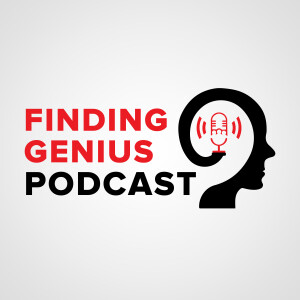
Insidious HIV: Dr. Masci Shares Story of AIDS through the Decades
 2020-11-06
2020-11-06
Joseph R. Masci began his time at Mt. Sinai when doctors were first confronted with HIV patients who had developed AIDs. He brings his intimate knowledge of this treatment and its evolving history to listeners in this episode.
Listeners will learn
- What doctors met at the bedside of an AIDS patient in terms of opportunistic infections and how the medical community became a second family to those suffering,
- How this retrovirus works through reverse transcriptase and a decades-long latency period, and
- How treatments and HIV prevention evolved into today's effective combination on an infectious disease microbiology level.
Joseph R Masci is a clinical professor in the Infectious Diseases, Environmental Medicine and Public Health, and Global Health divisions at Mount Sinai. He started his training at Mount Sinai in 1980 when experts in infectious diseases were first confronted with a rapidly expanding population of AIDs patients. Imagine facing large numbers of HIV patients with no antiretroviral drugs available and no effective treatment for at least 10 years down the road.
He and his colleagues offered emotional support in addition to soothing the opportunistic infections that the virus enabled. They created a special area, a "living room" in their hospital for these patients who were isolated from their families and became their second families. They put on concerts and memorial services for them. He says that the epidemic was "sudden, tragic and not treatable like today."
Because Dr. Masci was in it for the long haul, he's able to explain to listeners each stage of advancing treatment and an eventual measure for preventing the transmission of HIV. Along the way he explains the mechanics of infectious viruses, how HIV has especially insidious traits through its ability to become part of infected person's DNA and its long latency period. As with other common infectious diseases like Epstein Barr, once a person has it, they can't get rid of it.
He talks listeners through treatments like AZT, nucleosides, and the effective protease inhibitor drugs. He makes the vital point that much of the world doesn't have access to these very effective drugs and that many still die from AIDs in low income countries. He then is able to take the basics he's established through the podcast and establish some comparisons with COVID-19 and its treatment. Listen in for some of the most important medical history of our time.
For more about his work, find his publications in PubMed and ResearchGate.
Available on Apple Podcasts: apple.co/2Os0myK
More Episodes
Create your
podcast in
minutes
- Full-featured podcast site
- Unlimited storage and bandwidth
- Comprehensive podcast stats
- Distribute to Apple Podcasts, Spotify, and more
- Make money with your podcast
It is Free
- Privacy Policy
- Cookie Policy
- Terms of Use
- Consent Preferences
- Copyright © 2015-2024 Podbean.com






